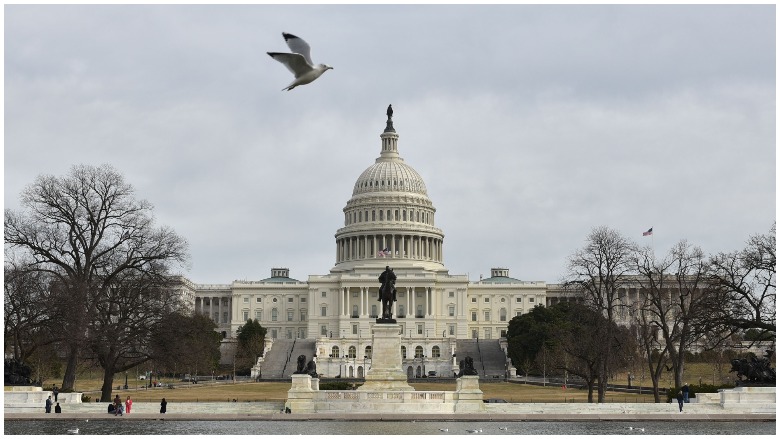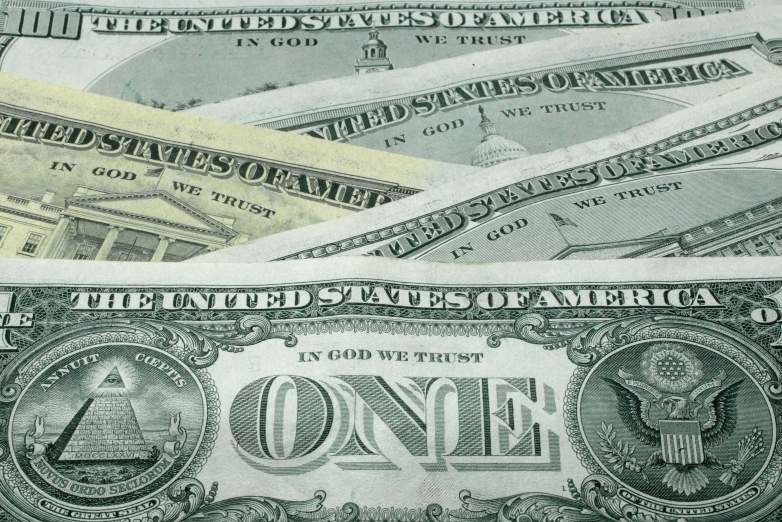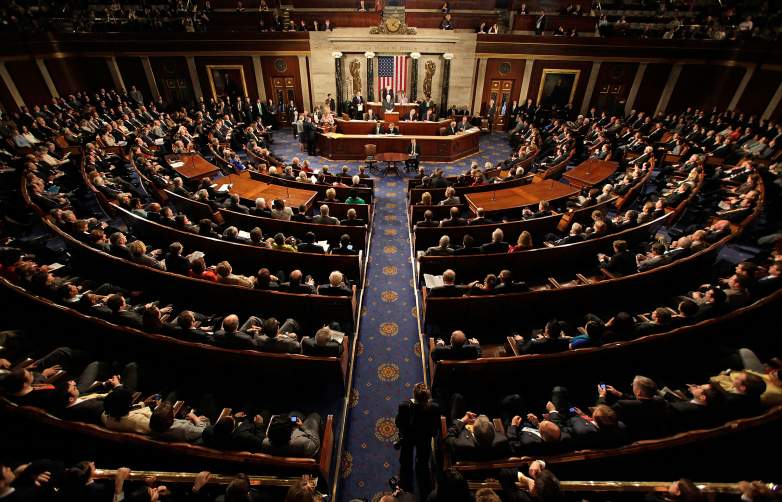
Getty
A bipartisan group of U.S. House members unveiled a new stimulus package as a last-ditch effort to push lawmakers into reaching a decision on another round of coronavirus relief before the upcoming election.
The Problem Solvers Caucus, which consists of 25 House Democrats and 25 House Republicans, publicized its roughly $1.5 trillion plan, dubbed “March to Common Ground,” on Tuesday, September 15.
The bill calls for up to $2 trillion in additional aid to the economy and seeks to reignite the currently stagnant negotiations between legislators, stating:
Having seen no progress on a new COVID-19 relief package in four months, and in recognition of Americans’ increasing suffering, the Problem Solvers Caucus (PSC) has developed a comprehensive, bipartisan framework to meet the nation’s needs for the next 6-12 months, that can pass both chambers of Congress and be signed into law by the President.
If it were to pass, the bipartisan package would inject at least $1.5 trillion into the economy, as well as re-purpose $130 billion from previous legislation.
CNN reported that the plan is a short-term solution to “shore up programs and provide new funding through the January presidential inauguration.”
Here’s what you need to know:
Over 75% of PSC Membership Approves of the Bill’s Framework for Endorsement

Getty
The bill’s framework has been approved for endorsement by over 75% of the PSC membership, according to an online version of the proposal.
The package features another round of stimulus checks, with up to $1,200 for individuals and an additional $500 per child and dependent adult.
The Paycheck Protection Program would also receive an additional $95 billion, while the remaining $145 billion from the first round of the program would be re-appropriated.
The bill would also revamp federal unemployment benefits with up to $450 per week for eight weeks, and then replace lost wages up to $600 per week for five weeks thereafter.
Another $500 billion would be allocated to state and local governments under the new plan, while $100 billion would be funneled toward virus testing and tracing and public health.
Mortgage and rental assistance would get $25 billion, with $130 billion for schools, $15 billion for the Postal Service and $400 million for elections.
Top Democrats Rejected the Proposal Just Hours After Its Debut

Getty
Top Democrats rejected the proposal just hours after it went public, The New York Times reported.
Eight House Democratic committee chairs released an online statement that criticized the plan of falling “short of what is needed to save lives and boost the economy.”
“When it comes to bolstering the public health system, supporting state and local governments and assisting struggling families, the Problem Solvers’ proposal leaves too many needs unmet,” the legislators wrote in the statement.
“With the general election just 49 days away and the Postal Service sabotaged by the Trump administration, their proposal also abandons our responsibility to protect the life of our democracy.”
The proposal also would not likely pass through the Republican-led Senate, Forbes noted, citing the overall price of the package.
“The main sticking point would be the $1.5 trillion price tag,” the outlet said. “Which could balloon to around $2 trillion in the new year if the crisis hasn’t improved by then because of the way some of the plan’s provisions would be tied to the economy’s performance.”
Pelosi said on Tuesday during an interview with CNBC that the House would not break for the November elections without agreeing upon another round of aid.
READ NEXT: Here’s How You Can Use a Form From the CDC to Avoid Being Evicted